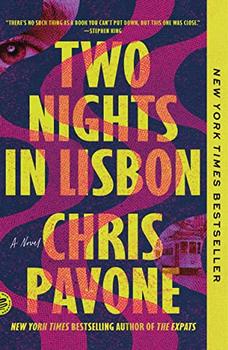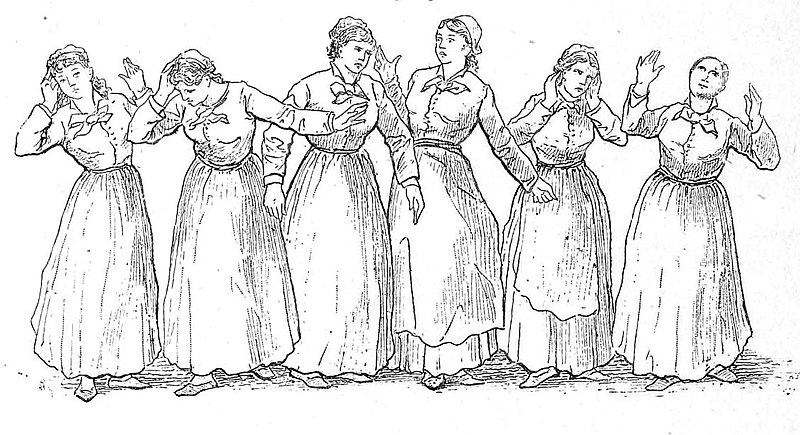Summary | Excerpt | Reading Guide | Reviews | Beyond the Book | Read-Alikes | Genres & Themes | Author Bio

Critics' Opinion:
Readers' Opinion:
First Published:
May 2022, 448 pages
Paperback:
May 2023, 448 pages
 Book Reviewed by:
Book Reviewed by:
Tina Choi
Buy This Book
This article relates to Two Nights in Lisbon
 Chris Pavone's portrayal of a victimized woman being called "hysterical" in Two Nights in Lisbon alludes to a phenomenon that can be found in accounts dating as far back as ancient Greece.
Chris Pavone's portrayal of a victimized woman being called "hysterical" in Two Nights in Lisbon alludes to a phenomenon that can be found in accounts dating as far back as ancient Greece.
In a Curiosities of Medical History feature for Medical News Today, Maria Cohut, Ph.D., details how conditions ranging from depression to infertility, and even a "fondness of writing," were long thought to be explained by a state Hippocrates and Plato termed "hystera," originally believed to be a tendency for the womb "to wander around the female body, causing an array of physical and mental conditions."
Although the general concept of hysteria dates back to ancient times, it became an especially popular diagnosis for women's physical and psychological ailments in the 18th and 19th centuries as doctors formed new theories about its causes and effective treatments. With the limited science of the day, one can imagine how "female hysteria" was a useful term to identify those mysteries that a mostly male medical profession failed to understand. The treatments prescribed are disturbing: sexual stimulation, institutionalization and the infamous "rest cure," involving bed rest and a lack of activity, which inspired the psychological horror story "The Yellow Wallpaper" by Charlotte Perkins Gilman.
The study of this "disease" was clearly tied to the social context of the time, but is still relevant to the current treatment of women in medicine and other fields. In an article for the Berkeley Political Review, Sofia Sarmiento notes that female hysteria was only removed from medical texts in the 1950s, stating, "The perception of femininity was deeply entangled with hysteria. This misinformation has created a dangerous environment in medicine that is alive and well today in which women's health issues are dismissed, underestimated and misdiagnosed due to a lack of widespread education on female bodies."
What is additionally troubling is when this masculine bias crosses over into the criminal realm, as is explored in Two Nights in Lisbon. The delineation between symptoms perceived as "real" and those perceived as being made up by women can be likened to how crimes seen as mostly affecting women, such as college sexual assault, are often dismissed as a personal issue.
Furthermore, with unreliable information in the internet age challenging our very conception of reality, one may become aware of the ease with which media and political/commercial forces can manipulate the public's perception of women's innocence or guilt. The question, however, remains: What to do with this awareness? In the case of Pavone's heroine, she determines that action is necessary for the justice she seeks.
A set of drawings from La photographie médicale: application aux sciences médicales et physiologiques by Albert Londe, published in 1893, showing a woman experiencing catalepsy brought on by "hysteria."
Filed under Society and Politics
![]() This "beyond the book article" relates to Two Nights in Lisbon. It originally ran in July 2022 and has been updated for the
May 2023 paperback edition.
Go to magazine.
This "beyond the book article" relates to Two Nights in Lisbon. It originally ran in July 2022 and has been updated for the
May 2023 paperback edition.
Go to magazine.




There are two kinds of light - the glow that illuminates, and the glare that obscures.
Click Here to find out who said this, as well as discovering other famous literary quotes!
Your guide toexceptional books
BookBrowse seeks out and recommends the best in contemporary fiction and nonfiction—books that not only engage and entertain but also deepen our understanding of ourselves and the world around us.